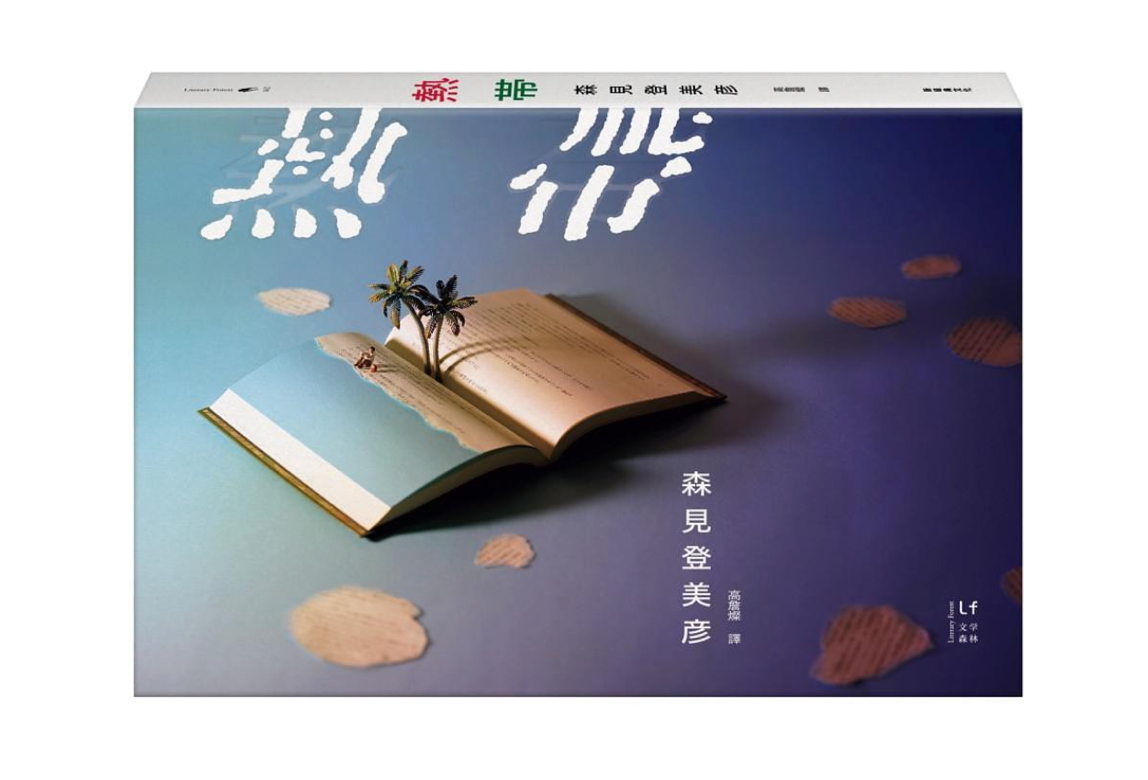Tomihiko Morimi's "Tropical": Does a book really have a "finished" moment?
Although I don't directly put the article here, I only use this document for those who like to read from the bottom of my heart.
Reading is often an endless journey. This is not just because a person may read a lot of books in his life, but because, in the same book, the words that once seduced the heart, even after reading, may still linger in the brain, as if we are still "reading" he. Just like a memory that has not yet been finalized, in the vague memory, it emerges, overlaps, disassembles, and reconstructs from time to time, and finally becomes its own thoughts.
In this sense, "reading" is the underlying writing. He opens up people to take the initiative to describe the world in a book, rather than directly enter the "content" into our heads. As you read, slowly describe and project the blanks and gaps in which the text unfolds, forming a world that only you can see. It is like an opening, once opened, it is difficult to close again.
In this way, does a book really have a "finished" moment? Mori sees Tomihiko's "Tropical", seems to be asking such a question. What's more interesting is that you can see that maybe people should not pursue reading a book, but go back and re-think whether some of the books they have finished are really the past for them, and they don't need to be. Are you going to read again?
This month's key column article - Tomihiko Morimi's "Tropical": Does a book really have a "finished" moment? Embark on the road of creation while reading~
Link: https://www.thenewslens.com/article/151790

postscript:
For a long time, people often think of the author and the reader as opposite things, and claim that the reader is the key and source of the meaning of reading.
But maybe we are all wrong, whether a work has meaning or not is separate from whether it has readers. Emphasizing that the reader is the source of meaning does not mean that a work has no meaning if it is not read. Rather, it is saying that the meaning of a work, if we hadn't read it, we wouldn't have known it at all.
Are writers and readers opposites? In fact, it may be just the opposite. Writer and reader are not opposing structures, but complementary roles. When reading a work, readers can use the author's ideas to corroborate and extend their own interpretation. On the contrary, when the author understands and describes his own work, he can also look back from the reader's reaction to see things he never thought about when he wrote it. And what these readers extend and borrow from the author, and what the author borrows from the reader, will become part of the work. Or he doesn't need to be part of the work, but something that the work generates through the fields that the readers and writers extend out of, calling on new writers and readers to construct something new.
In fact, the author is already a reader in the first place, and a reader who has seen almost every evolution of the work. We may therefore feel that the author is a relatively dominant reader, because he probably has the most information, and many things and details may only be investigated from him. But on the contrary, ordinary readers also have information about his book that the author does not know, such as what kind of people buy most of his works? Why these people? Is there a common part of why they like the work? These unexpected things by the author will also be a resource for reading this work.
But there is one thing that may be completely different for readers and writers.
"Why can't we finish 'Tropical'? That's because the ending, which is a border with reality, doesn't exist in the book 'Tropical'... How can I say it? It means that we haven't finished it yet. That day The story you turned the page, we are still reading..." - Tomihiko Morimi, "Tropical"
As an author, no matter how much he enjoys the process of creation, in the end he still has to give his work an ending, otherwise the work cannot be completed. But for the reader, does he need to admit that this is the end of the story? Is it necessary for him to think that the story is finished?
The reason why this sentence of "Tropical" is so impressive to me is that he mentioned an idea that appeals to me: the ending of the book, in fact, never existed in the book.
The responsibility of the author is to give an ending to the work he created, but the task of the reader seems to be the opposite. Find other endings in your own life. Like the protagonists in "Tropical," they can't finish the book they found, because the rest has to be created by themselves.
The real ending doesn't exist in the book, he exists in the reader's next journey. And that seems to be the point of reading.
(This article is simultaneously published on the square grid blog: Literature Lab )
FB Fan: https://pse.is/TCBRA
IG account: https://www.instagram.com/bungoussteins/
Like my work? Don't forget to support and clap, let me know that you are with me on the road of creation. Keep this enthusiasm together!

- Author
- More